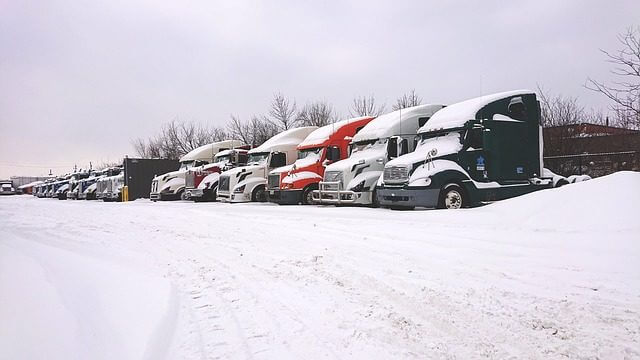


Winter storms that have ravaged Texas and other parts of the South this week are causing logistics delays and disruptions that are expected to linger as temperatures warm up and the cleanup and recovery period begins.
“Next week is really when the thaw plays out and we replenish and restock shelves that are bare right now and we start the recovery,” David Spencer, director of business intelligence at Arrive Logistics, an Austin, Texas-based freight broker that does business nationwide, said Friday. “And we need to be mindful [that] it may stress demand for capacity in this area [for some time].”
Spencer likens the effects of this week’s Southern storms to the sustained impact of a hurricane, pointing to spikes in activity as shippers and carriers worked to get deliveries in or out of the region before the storm hit, complete shutdowns at the height of the storm, and power outages and infrastructure damage that will hamper normal activity in the weeks to come.
He added that the regional effects on transportation and logistics will reverberate nationwide.
“A disruption of this size impacts the balance of capacity [in that] carriers are looking to avoid going through or in or out of these areas,” said Spencer. “Carriers with capacity in these areas had to shut them down. Large portions of fleets were not available. That shortage of capacity creates constraints nationwide.”
All of that contributes to an increase in spot activity and rising spot rates, and puts upward pressure on contract rates, he said.
Jonathan Foster, principal consultant at procurement industry consulting firm Proxima, agrees that the storms will have far-reaching effects, especially because they come on top of an already stressed supply chain.
“Supply chains will continue to be impacted for a couple weeks in the best-case scenario. Networks were already out [of] balance due to pent-up demand and intermittent pauses to immediate fulfillment from continued lockdowns. Another large-scale disruption only complicated that,” Foster said in a statement earlier this week. “As the snow and ice lifts, people will migrate back to stores to fill the immediate [needs] they could not get. This will create surges into markets, while carriers will be working to unbury this backlog and in parallel deal with spiking demand. This is dynamic disruption at its core and is literally and figuratively hitting the heart of our country right now.”
The storm is also affecting cross-border trade, according to leaders at digital freight forwarder and customs broker Nuvocargo. Delays and closures at the border are creating late shipments and postponements; border crossings at Laredo, Texas, for instance, went from taking less than a day under normal conditions to taking two to three days this week, said company founder and CEO Deepak Chhugani.
“We are continuing to see carriers delayed getting their trucks moving as the storm has created a temporary breakdown in the infrastructure as power outages and other challenges arise,” Chhugani said Thursday, emphasizing the need for fleets and their shipping partners to keep communication lines open, adjust shipping routes if possible, and stay up-to-date on fast-changing developments. “As the storm continues, we can expect that it will take some time for the schedule to get back on track.”
In addition to delays and disruptions, the storm has also altered demand for equipment in Texas and other Southern states unaccustomed to freezing temperatures. Spencer says Arrive Logistics has seen a surge in demand for refrigerated equipment that can be used to keep cargo at temperatures above freezing, for instance.
“Bottled water is one example. You can put that in a refrigerated unit to protect it from freezing,” he said. “We think the refrigerated capacity will be more affected at least through the storm with these extreme temperatures.”
Photo credit: DC Velocity, original article posted here https://www.dcvelocity.com/articles/49627-storms-deliver-another-punch-to-challenged-supply-chains